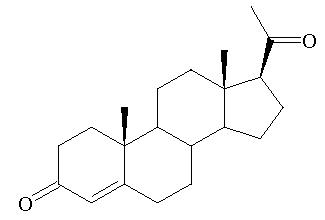
About Progesterone
Progesterone is the other important female hormone. Like estradiol, it is responsible for a normal monthly cycle, and is also important for the health of bone, blood vessels, heart, brain, skin and many other tissues and organs. In recent years, we have come to appreciate how important it is to consider this hormone in the treatment of menopausal symptoms, pre- menstrual syndrome and infertility. We are still discovering the importance of this important hormone. For example: even though progesterone is produced by the corpus luteum (which develops after ovulation) in its highestlevels during the last half of the female cycle, levels are maintained in the first half of the cycle by the adrenal glands. In fact, progesterone is a precursor (building block) for most other hormones including estradiol, testosterone and cortisol. Progesterone, like estradiol, plays an important role in mood, blood sugar balance, sex drive and thyroid function, as well as adrenal gland Health. Peri and post menopausal women may monitor the decreasing levels of this hormone that occur with aging and menopause. Cycling women experiencing PMS symptoms that may be due to a hormonal imbalance may also monitor progesterone.
Progesterone has important functions in men as well. Though considered to be a hormone exclusively in women, progesterone is a precursor (building block) for most other hormones important for male health including testosterone, DHEA and cortisol, and yes, even the smallamount of estradiol men have. In men, progesterone plays an important role in adrenal gland health, as well as being an important consideration for the health of other hormones.
See:
Production of Progesterone
Pathway:
Pregnenolone --> Progesterone --> 17 -Hydroxyprogesterone
Pregnenolone --> Progesterone --> 11-Deoxycorticosterone
Common Names: progesterone; progestin; progestone; pregnendione
Chemical Name: Pregn-4-ene-3,20-dione
Molecular Formula: C21H30O2
Molecular Weight: 314.4668
